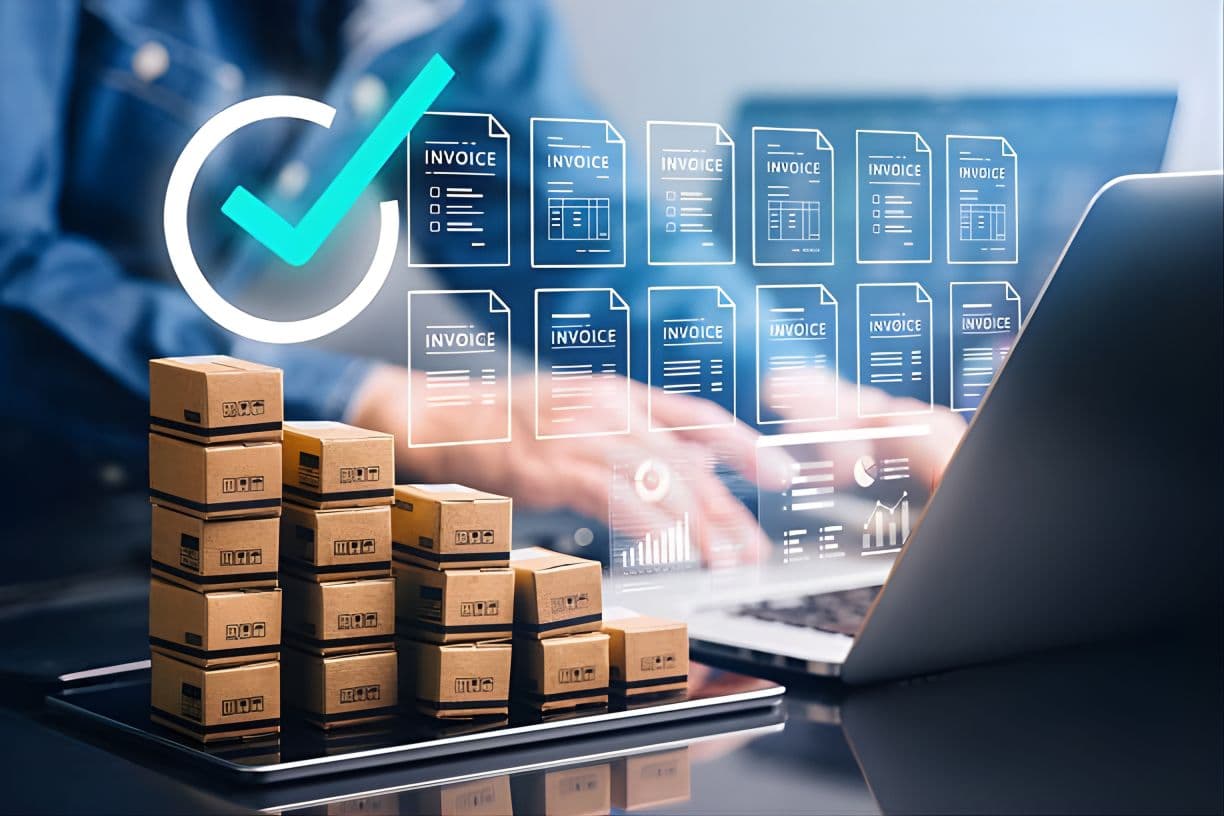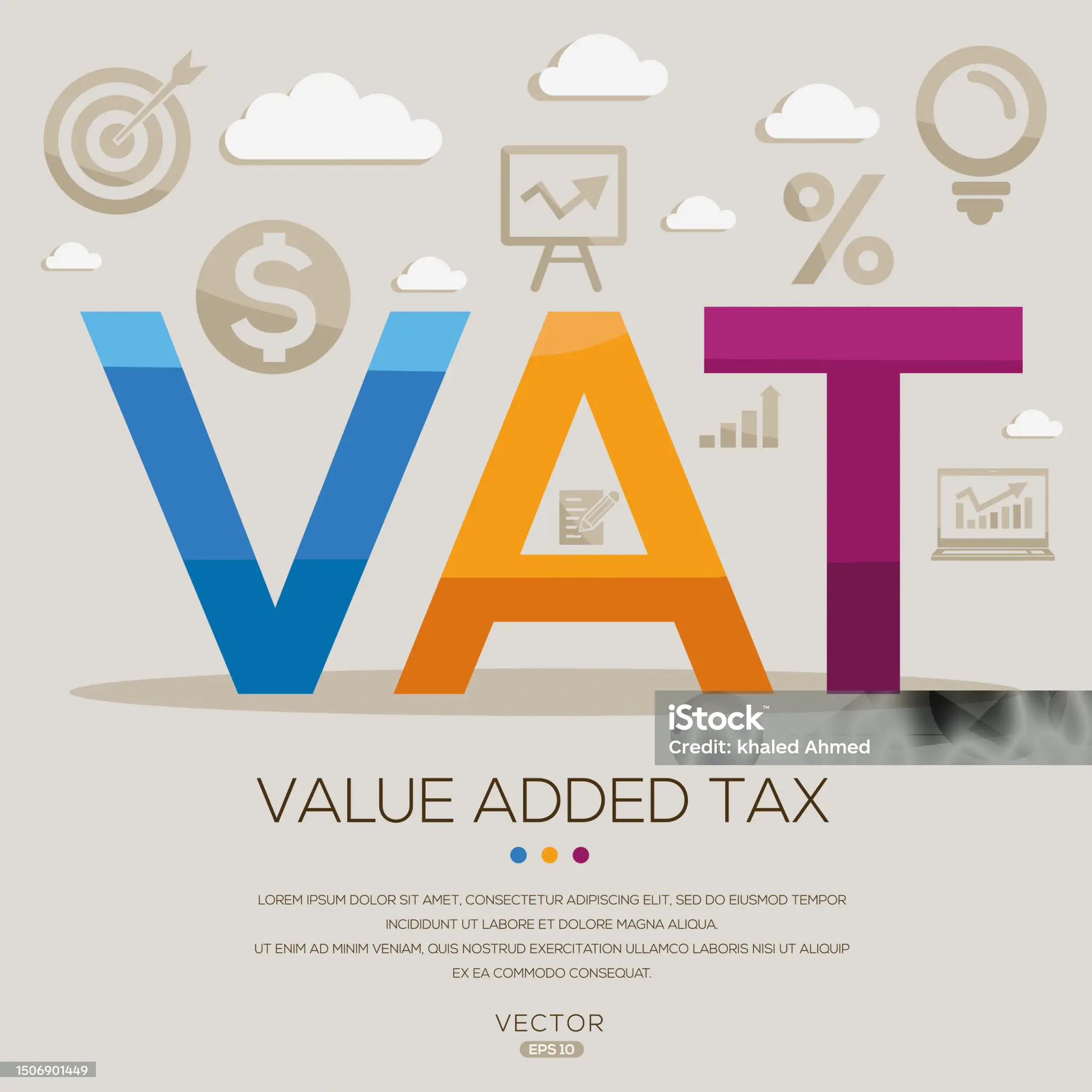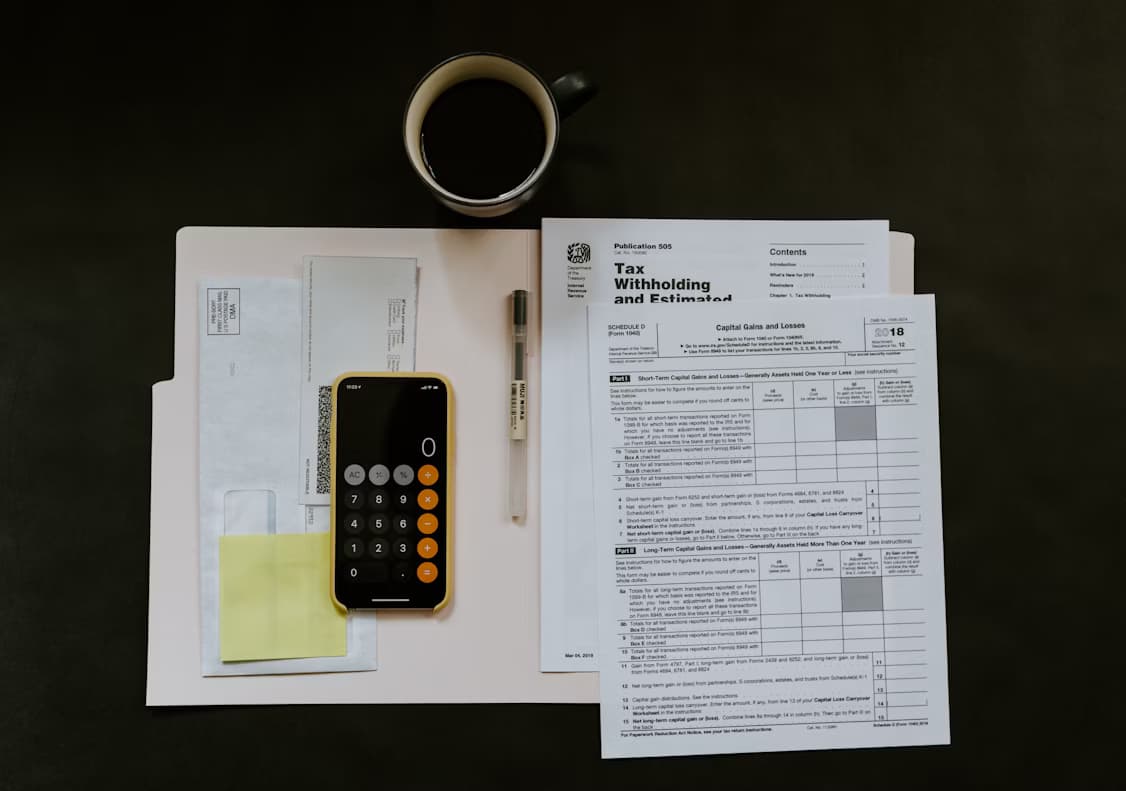VAT on exports: how to invoice foreign clients?

Introduction
Are you invoicing a client in France, Germany or the United States? Good news: in most cases, you do not need to apply Swiss VAT on your exports. The principle is simple: VAT is collected in the country where the goods are consumed or the service is used, not in the country of origin.
But be careful: this exemption is not automatic. It depends on several criteria: the nature of your service (physical goods or service), the destination country (EU or non-EU), and the status of your client (business or individual). Without the correct information on your invoice or adequate export evidence, you risk an adjustment during an FTA inspection.
This guide explains concretely how to invoice your foreign clients in full compliance. You will discover the exemption rules according to different situations, the supporting documents to keep, the mandatory information to include on your export invoices, and how to correctly declare these transactions in your VAT return.
📌 Summary (TL;DR)
The export of goods and services abroad is generally exempt from Swiss VAT, but the rules differ depending on the country (EU or non-EU) and the nature of the service. You must keep valid export evidence and include specific information on your invoices. Transactions must be correctly declared in your VAT return to remain compliant with FTA requirements.
📚 Table of contents
Export and VAT: the exemption principle
When you sell goods or services to clients located outside Switzerland, you benefit from a VAT exemption. Concretely, you apply a 0% rate: no Swiss VAT is charged.
According to the Federal Tax Administration (FTA), an export refers to any delivery of goods transported abroad or any provision of services whose place of consumption is located outside Switzerland.
To benefit from this exemption, you must meet two essential conditions: prove that the delivery or service has actually left Swiss territory, and keep the appropriate documentation for 10 years.
Warning: the exemption only concerns Swiss VAT. Your client may be subject to VAT or customs duties in their country.
Invoicing a client in the European Union
The rules differ depending on whether your client is a business (B2B) or an individual (B2C).
For business clients (B2B): You invoice without Swiss VAT by applying the reverse charge mechanism. Your client declares and pays VAT directly in their country. You must include their intra-Community VAT number on the invoice and indicate the mention "Reverse charge".
For individuals (B2C): The rules are more complex. In principle, you invoice without Swiss VAT, but depending on the distance selling thresholds of each country, you may need to register for local VAT. These thresholds vary between 35,000 and 100,000 euros depending on the member states.
On your export invoice to the EU, always mention: your Swiss VAT number, the client's intra-Community VAT number (B2B), the destination country, and the explicit exemption mention.
Invoicing a client outside the EU
For clients located outside the European Union (United States, Canada, post-Brexit United Kingdom, Asia, Africa, etc.), the rules are simpler.
You systematically apply the principle of Swiss VAT exemption: 0% rate, no VAT charged. No intra-Community VAT number is necessary since this mechanism only concerns the EU.
On your invoice, clearly indicate: "Export outside Switzerland - VAT 0%" or "International delivery - exempt from VAT". Mention the client's destination country.
Your client remains responsible for paying local taxes, customs duties and VAT in their country according to applicable legislation. Inform them that additional charges may apply upon receipt.
Keep all export evidence: customs documents, transport documents, delivery confirmation. These supporting documents are essential in case of an FTA inspection.
Export evidence to keep
To justify the VAT exemption to the FTA, you must keep documentary evidence of the export. Without these supporting documents, the administration can challenge the exemption and claim the VAT from you.
The required documents vary depending on whether you export physical goods or services. In all cases, the legal retention period is 10 years.
Organise rigorous filing: number your invoices, associate each invoice with its export documents, and keep secure digital copies in addition to paper originals.
For physical goods
The export of goods requires complete customs documentation.
Mandatory documents: Export declaration (SAD - Single Administrative Document), copy stamped by Swiss customs, proof of international shipment (transport document, bill of lading, CMR consignment note), tracking or parcel tracking number, detailed commercial invoice.
For courier shipments (DHL, FedEx, UPS), keep shipping documents and delivery confirmations with recipient's signature.
For hand deliveries abroad, obtain a signed acknowledgement of receipt mentioning the place of delivery outside Switzerland.
Complete traceability is essential: from leaving your warehouse to receipt by the foreign client. Any missing link can compromise the exemption.
For services
For service provisions, proof of export relies on demonstrating that the service is used or exploited abroad.
Documents to keep: Contract or purchase order mentioning the client's address abroad, commercial correspondence (emails, letters), precise description of the nature of the service and its place of use, detailed invoices with client location.
For digital services (web development, design, online consulting), keep: the client's connection IP address, exchanges by email or platform, contracts specifying the place of performance.
For intellectual services (consulting, training, audit), document: travel abroad (tickets, expense reports), meeting reports, deliverables transmitted to the foreign client.
The more precise your documentation, the more protected you are in case of inspection.
How to correctly draft an export invoice
An export invoice must comply with all the mandatory information of a standard Swiss invoice, plus specific elements related to Swiss VAT exemption.
Clarity is essential: your foreign client and the FTA must immediately understand that this is an export exempt from Swiss VAT.
Here are the elements to include systematically.
General mandatory information
Every export invoice must include the basic elements of a compliant invoice:
Complete contact details: Name or company name of your business, complete address in Switzerland, telephone number and email.
Identification: Your Swiss VAT number (CHE-XXX.XXX.XXX VAT) if you are subject to VAT, unique and sequential invoice number, issue date.
Client: Name or company name, complete address abroad, destination country.
Service details: Precise description of goods or services, quantities, unit prices, total amount excluding VAT.
These mentions are identical for any invoice, whether national or international.
Export-specific information
In addition to general information, add the following elements without fail:
Clear indication of VAT exemption: Explicitly mention "Export - VAT 0%", "Delivery outside Switzerland - exempt from VAT" or "Export - exempt from Swiss VAT". Display the VAT rate at 0% on the VAT line.
For EU B2B clients: Indicate the client's intra-Community VAT number and add the mention "Reverse charge - Article 196 VAT Directive" according to practice.
Destination country: Clearly mention the country where the goods are delivered or where the service is used.
Total amount: The final amount corresponds to the amount excluding VAT, since no Swiss VAT is applied.
These mentions legally protect your exemption and facilitate your client's customs procedures.
Example invoice for foreign client
Here is a concrete export invoice template:
Header: Your Company Ltd | Example Street 12, 1000 Lausanne | CHE-123.456.789 VAT
Client: ABC GmbH | Hauptstrasse 45 | 10115 Berlin, Germany | Intra-Community VAT No.: DE123456789
Invoice No.: 2024-0156 | Date: 15 March 2024
Services: Website development: 5,000 CHF | Annual hosting: 500 CHF | Subtotal: 5,500 CHF | VAT (0% - EU Export - Reverse charge): 0.00 CHF | Total to pay: 5,500 CHF
Mention: "Reverse charge - The recipient accounts for VAT"
With BePaid, simply configure a 0% VAT rate for your export invoices and customise the mandatory mentions.
Special cases and pitfalls to avoid
Certain export situations are more complex and generate frequent errors. Here are the cases that require particular attention.
Incorrect qualification can lead to incorrect VAT invoicing, tax adjustments and penalties. Always analyse precisely the place of delivery and the actual use of the goods or service.
Delivery in Switzerland with invoicing abroad
Your client has their headquarters abroad, but you deliver the goods in Switzerland? Swiss VAT applies.
The determining criterion is not the invoicing address, but the actual place of delivery. If the goods remain in Switzerland, it is not an export: you must charge Swiss VAT at the standard rate (8.1%) or reduced rate depending on the nature of the product.
Typical example: a German company orders equipment for its Zurich office. Even if the invoice is addressed to the headquarters in Germany, delivery to Zurich implies the application of Swiss VAT.
Systematically check the delivery address before issuing your invoice.
Digital services and place of consumption
For digital services (software, online training, streaming, downloads), the place of consumption determines the applicable VAT.
In principle, if your client is established abroad and uses the service abroad, you apply Swiss VAT exemption.
But beware of thresholds in the EU: if you sell digital services to European individuals and exceed 10,000 euros in annual turnover in the EU, you must register with the OSS (One Stop Shop) and declare VAT in the countries of consumption.
For EU business clients (B2B), reverse charge applies normally: you invoice without VAT by mentioning their intra-Community VAT number.
Always document the actual location of your clients (IP address, country of bank card).
Client with permanent establishment in Switzerland
A foreign client with a permanent establishment in Switzerland (subsidiary, branch, permanent office) may modify the application of VAT.
If your service is intended for this Swiss establishment, Swiss VAT applies, even if the parent company is abroad.
Check your client's actual status: ask if they have a Swiss VAT number. If yes, invoice with Swiss VAT. If the service is intended for the foreign headquarters with no link to the Swiss establishment, the exemption may apply.
In case of doubt, consult the FTA or a tax specialist to correctly qualify the situation.
Declaring your exports in the VAT return
Even if your exports are exempt from VAT, you must declare them in your VAT return to the FTA.
Exports appear in the section "Turnover from exempt services" (figure 200 of the simplified form or figure 220 of the detailed form depending on your accounting method).
This exempt turnover does not enter into the calculation of VAT due, but it is taken into account to determine your total turnover and verify your liability.
Right to deduction: You can deduct VAT paid on your charges related to exports (raw materials, transport costs, etc.). This is a significant advantage for your cash flow.
Keep all your export evidence rigorously. In case of inspection, the FTA will verify the consistency between your declarations and your supporting documents. Incomplete documentation can lead to an adjustment with interest.
Depending on whether you declare according to the agreed or received consideration method, declare your exports on the invoicing date or on the payment date.
Simplifying management with BePaid
BePaid facilitates international invoicing by allowing you to configure customised VAT rates, including 0% for your exports.
Create specific invoice templates with adapted exemption mentions ("Export - VAT 0%", "Reverse charge", etc.). Customise the texts according to your needs.
The integrated VAT management allows you to track your national and international sales separately. You can see your exempt turnover at a glance.
Accounting exports group all your invoices with their VAT treatment, facilitating the preparation of your quarterly or half-yearly VAT return.
Store your export documents (delivery notes, customs evidence) directly in BePaid for complete traceability.
No miracle promise: BePaid does not replace tax advice, but it concretely simplifies your daily administrative management.
Invoicing foreign clients involves understanding VAT exemption rules and keeping the necessary export evidence. Whether you sell physical goods or services, the mandatory information on your invoices and appropriate documentation are essential to remain compliant during your VAT returns.
Special cases such as digital services, clients with permanent establishment in Switzerland or triangular deliveries require particular attention. In case of doubt, do not hesitate to consult the FTA or a tax specialist to secure your international operations.
BePaid simplifies the creation of compliant export invoices with mandatory information and allows you to manage your VAT efficiently. Discover our VAT management module and create your first invoices for free to test the platform. You save time on administration and focus on developing your international business.


